One Nation is a right-wing populist political party in Australia, founded and led by Pauline Hanson. Known for its nationalist and protectionist policies, One Nation advocates for reduced immigration, increased border security, and protection of Australian industries. The party often expresses Eurosceptic views and has been critical of multiculturalism. Other key issues include concerns about rural communities and opposition to what it perceives as political correctness and climate change policies. One Nation has held seats in both state and federal parliaments since its formation, and Hanson has remained a prominent figure in Australian politics.
1996: Paul Keating denounces Hanson in 1996
Former Australian Prime Minister Paul Keating denounced Hanson in a speech in 1996, saying that she projected "the ugly face of racism" and was "dangerously divisive and deeply hurtful to many of her fellow Australians."
1996: Hanson's anti-elite rhetoric anno 1996
Writer Hans-Georg Betz argued that in the twenty-first century where "today's army of self-styled commentators and pundits summarily dismissing radical right-wing populist voters as uncouth, uneducated plebeians intellectually incapable of understanding the blessings of progressive identity politics, Hanson's anti-elite rhetoric anno 1996 proved remarkably prescient, if rather tame."
April 1997: One Nation Party Launched
In April 1997, shortly after being elected to federal parliament, Pauline Hanson formed the One Nation party with co-founders David Oldfield and David Ettridge. One Nation was launched on 11 April 1997, at an event held in Ipswich, Queensland.
1998: Election results
At the 1998 federal election, Hanson lost to Liberal candidate Cameron Thompson. One Nation candidate Heather Hill was elected as a senator for Queensland, but was later found ineligible due to citizenship issues. The seat went to the party's Len Harris following a recount.
1998: Analysis of 1998 election
In an analysis of the 1998 federal election, political scientists Ian McAllister and Clive Bean found that One Nation supporters did not come from a traditionally conservative demographic.
1998: One Nation primary vote results in 1998
In the lead-up to the 2025 Australian federal election, pollsters recorded an increase in One Nations primary vote, the party began to come close to or surpass their result at the 1998 Australian federal election.
1998: Key themes of Pauline Hanson's 1998 maiden speech
Some key themes of Pauline Hanson's 1998 maiden speech were opposition to what she said were increasingly high rates of immigration from Asian countries and an argument for economic protectionist policies.
1998: Voter Demographics and Sentiments
Surveys of voters at the 1998 federal election and the 1998 Queensland state election found One Nation voters were more likely than other voters to be male, residents of rural electorates, blue-collar workers and firearm owners, distinguished by their anti-immigrant and anti-Aboriginal sentiments and by their dissatisfaction with or alienation from the political environment.
1998: Greatest electoral success
The 1998 Queensland state election produced One Nation's greatest electoral success, winning 11 seats. The One Nation Party received 22.7% of the first preference vote, giving them the second largest voter turnout for any party in Queensland during the 1998 election. One Nation drew the majority of its support from regional and rural Queensland, winning nine of its 11 seats in rural and regional electorates.
April 1999: First Annual General Meeting
In April 1999, the first Annual General Meeting of the One Nation party was held, which critic Paul Reynolds said demonstrated that One Nation lacked organisation.
1999: Election to the NSW Legislative Council
At the 1999 New South Wales state election, David Oldfield was elected to the New South Wales Legislative Council.
1999: Research indicates supporter concerns in 1999
In 1999 Milton Osborne noted that research indicated Hanson's initial supporters did not cite immigration as a major reason for their support for One Nation, but instead they were most concerned about economic issues and unemployment.
1999: Preferences directed away from One Nation
In 1999, Glenn Druery admitted that he had been directing the preferences of micro-parties away from One Nation.
1999: Parliament split
In late 1999, the One Nation contingent in the Queensland Parliament split, with dissident members forming the rival City-Country Alliance.
October 2000: Expulsion of David Oldfield
In October 2000, Hanson expelled David Oldfield from the party after a disagreement, creating even more instability in a party which was constantly embroiled in scandal and internal strife. Oldfield attacked Hanson publicly, saying that "everything including her maiden speech and every word of any consequence that she's said since, has actually been written for her".
2001: One Nation's informal ties with far-right movements in 2001
A 2001 study showed that One Nation had extensive informal ties and received endorsements from far-right movements due to the party requiring "the support of those groups in establishing the party and because of a convergence of interests".
2001: Extended decline after initial success
After initial electoral success in the late 1990s, Pauline Hanson's One Nation party suffered an extended decline after 2001.
2001: Electoral decline
At the 2001 Western Australian state election One Nation won three seats in the state, however the party was reduced to three seats the same year at the 2001 Queensland state election. During the 2001 Australian federal election, the party's vote fell from 9% to 5.5%. Hanson failed in her bid to win a Senate seat from Queensland, despite polling a strong 10% of the primary vote. Hanson also failed to win a seat in the New South Wales Legislative Council.
2001: Oldfield creates One Nation NSW
In 2001, David Oldfield engineered a split within the party, creating One Nation NSW.
2001: Fraud accusations and legal challenges
In 2001, disendorsed One Nation candidate Terry Sharples accused the party of not having the 500 members needed for registration. Hanson appeared before the Brisbane Magistrates Court to face charges of electoral fraud, claiming that she was being subjected to "a political witch-hunt." While court hearings proceeded, Hanson ran for a seat in the NSW Upper House as an independent, but only received 1.9 per cent of the vote.
April 2002: One Nation NSW achieves registration
In April 2002, One Nation NSW took advantage of electoral party registration laws to register itself as a political party under the 'One Nation' name with the NSW electoral commission.
2003: Fraud convictions
In 2003, both Ettridge and Hanson were found guilty of fraudulently registering One Nation and obtaining more than $500,000 from the AEC. Hanson was sentenced to three years in jail, stating outside the court that the verdict was "Rubbish, I'm not guilty... it's a joke".
2004: Poor results and Senate loss
At the 2004 Queensland state election, One Nation polled less than 5% of the vote and its sole elected representative, Rosa Lee Long, acted as an independent. One Nation attempted to defend its Queensland Senate seat at the 2004 federal election, but lost it.
February 2005: Federal party status lost
On 8 February 2005, One Nation lost federal party status but was re-registered in time for the 2007 federal election. In the February 2005 Western Australian state election, the One Nation vote collapsed.
June 2005: End of Harris's Senate term
Len Harris's Senate term expired on 30 June 2005.
2006: Queensland state election and vote collapse
In the 2006 Queensland state election, the party contested four of 89 seats, and its vote collapsed. It suffered a swing of 4.3% to be left with just 0.6% of the vote.
2006: South Australian state election results
In the 2006 South Australian state election, six One Nation candidates stood for the lower house. Their highest levels of the primary vote was 4.1% in the district of Hammond and 2.7% in Goyder, with the other four hovering around 1%. They attracted 0.8% (7559 votes) of the upper house vote. One Nation consequently won no seats in that election.
2007: Re-registration for federal election
One Nation was re-registered in time for the 2007 federal election.
2009: Failure to win Dalrymple seat
In the 2009 Queensland state election, Tablelands was abolished prior to the 2009 Queensland state election, with Lee Long failing to win the seat of Dalrymple.
2011: Donations from Pro-Gun Groups
In the period 2011–2018, a report found that Pauline Hanson's One Nation Party had received over $6,000 in disclosed donations from pro-gun groups, with concerns these donations threatened to compromise Australia's safety by undermining gun control laws. The Queensland branch of the party received $17,000 from the agriculture sector (meat and sugar industry) between 2016 and 2021.
2012: Unsuccessful Queensland state election
In the 2012 Queensland state election the party unsuccessfully contested six seats. The party received only 2,525 first preference votes (representing 0.1% of the total cast) across the state.
2013: Rejoined as a rank-and-file member
In 2013, Hanson rejoined One Nation as a rank-and-file member. Later that year, she unsuccessfully contested the Senate for New South Wales at the 2013 federal election.
2013: Membership increase
In 2013, it was reported by One Nation that the party had more than 5000 members, with the figure rising since Hanson returned as party leader.
2014: Reappointed as leader
In 2014, Hanson was reappointed as leader by the One Nation executive.
January 2015: Unsuccessful bid for Lockyer seat
In January 2015, Hanson contested the seat of Lockyer for the party at the January 2015 Queensland state election, falling 114 votes short of defeating sitting Liberal National Party member Ian Rickuss.
July 2015: Party renamed
In July 2015, Hanson announced that the party was renamed the original "Pauline Hanson's One Nation" and contested in the Senate for Queensland at the 2016 federal election.
July 2015: "Fed Up" tour begins
In July 2015, in the lead up to the 2016 election, Hanson arranged a "Fed Up" tour that began in July 2015 as part of her re-election campaign, flying in a private plane to Rockhampton prior to a Reclaim Australia rally, piloted by James Ashby.
December 2016: Andy Semple withdraws as One Nation candidate for Currumbin
In December 2016, Andy Semple withdrew as a candidate for Currumbin, after the party told him to delete an LGBT joke on Twitter.
December 2016: Rod Culleton leaves the party
In December 2016, Rod Culleton (WA) left the party after months of legal troubles and party infighting to sit as an independent bringing the number of party senators to three.
2016: Senate Election Success
At the 2016 federal election the party polled 4.3% (+3.8) of the nationwide primary vote in the Senate. Pauline Hanson (QLD) and three other One Nation candidates – Malcolm Roberts (QLD), Brian Burston (NSW) and Rod Culleton (WA) were elected to the Senate.
2016: Donations from Agriculture sector
Between 2016 and 2021, the Queensland branch of Pauline Hanson's One Nation Party received $17,000 from the agriculture sector (meat and sugar industry).
2016: One Nation runs migrant Chinese and Indian candidates since 2016
Despite the party's early image as an anti-immigration party, One Nation has - since 2016 - ran a number of migrant Chinese and Indian candidates in elections.
2016: Return to Senate
Following Hanson's return as leader and the 2016 federal election, the party gained four seats in the Senate, including one for Hanson herself, in Queensland.
2016: "Fed Up" tour arranged by Hanson.
In the lead up to the 2016 election, Hanson arranged a "Fed Up" tour that began in July 2015 as part of her re-election campaign, flying in a private plane to Rockhampton prior to a Reclaim Australia rally, piloted by James Ashby.
2016: One Nation elected
On 14 June 2018, Senator Brian Burston announced his resignation from the party to sit as an independent, following a month-long clash with Hanson centred around the Turnbull Government's corporate tax cuts, on which Hanson had reversed her position. This reduced the party to 2 senators, with Hanson remaining the only member of One Nation elected at the 2016 Federal election.
January 2017: Culleton stripped of Senate seat
In January 2017, Senator Rod Culleton was stripped of his seat after he was declared bankrupt.
February 2017: High Court rules Culleton's election invalid
On 3 February 2017, the High Court of Australia ruled that Culleton's election was invalid due to a conviction for which he was subject to being sentenced at the time of the election, notwithstanding that the conviction was subsequently annulled.
March 2017: High Court ruling on Culleton's election
In March 2017, the High Court ruled that Culleton's election to the Senate was invalid in any event because of a criminal conviction in New South Wales.
May 2017: Release of taped conversation between Hanson and Ashby
In May 2017, a new scandal arose when a taped conversation between Pauline Hanson and political advisor James Ashby was released. The tape showed that Ashby had supported charging One Nation candidates inflated prices for campaign materials.
August 2017: Constitutional Change for Party Leadership
In August 2017, One Nation's constitution was changed so that Pauline Hanson would be party President for as long as she may wish, and to choose her successor, who may also continue until resignation.
October 2017: Malcolm Roberts ruled ineligible
On 27 October 2017, the full High Court, as Court of Disputed Returns, ruled that Malcolm Roberts had been ineligible to be elected to the Parliament.
2017: One Nation disendorses Bundamba candidate Shan Ju Lin
During the 2017 Queensland state election, One Nation disendorsed its Bundamba candidate Shan Ju Lin after her anti-gay social media post.
2017: Candidate controversies
During the 2017 Western Australian state election, several One Nation candidates either quit or were disendorsed. One Nation previously formed a 'conservative bloc' with the Liberal Democratic Party and Shooters, Fishers and Farmers Party in the Western Australia Legislative Council.
2017: Opposition to Same-Sex Marriage
During the debate on the Marriage Amendment (Definition and Religious Freedoms) Act 2017 which would legalise same-sex marriage in Australia, Pauline Hanson and other members of One Nation expressed their opposition to same-sex marriage. However, the party did not take an official stance, and One Nation senators were allowed a free vote on the issue.
2017: Preference Whisperer
In 2017, Glenn Druery admitted that he had been directing the preferences of micro-parties away from One Nation since 1999.
2017: One Nation's anti-establishment stance in 2017
Political scientist Ian McAllister argues the current version of One Nation from 2017 does not have much in the way of policy beyond an "anti-establishment stance" while others have argued it has changed to focus its policies on opposition to Islam.
2017: Anti-LGBT comments made by One Nation election candidates in 2017
Various One Nation election candidates have made anti-LGBT comments in 2017, such as one calling same-sex marriage "poof poof marriage" and making the comment, "You see when we consummate a marriage kids are generally born 9 mths later when gays consummate its [sic] just bum sex for enjoyment", and another saying that "Norwegian homosexuals" are behind a "mind control program".
June 2018: Brian Burston resigns
On 14 June 2018, Senator Brian Burston announced his resignation from the party to sit as an independent, following a month-long clash with Hanson centred around the Turnbull Government's corporate tax cuts, on which Hanson had reversed her position. This reduced the party to 2 senators, with Hanson remaining the only member of One Nation elected at the 2016 Federal election.
October 2018: Senate motion "it is OK to be white" defeated
In October 2018, a Senate motion brought by One Nation stating "it is OK to be white" was defeated 31–28 in a vote. The government expressed regret for the support the motion received, attributing it to an administrative error. Critics noted that the phrase has been associated with white supremacist rhetoric.
November 2018: Mark Latham Joins One Nation
In November 2018, former Labor Party leader Mark Latham joined One Nation as leader for New South Wales.
2018: Hanson calls for immigration cap of 75,000 in 2018
In 2018 Hanson called for immigration numbers to be capped at 75,000 a year.
2018: Donations from Pro-Gun Groups
In the period 2011–2018, a report found that Pauline Hanson's One Nation Party had received over $6,000 in disclosed donations from pro-gun groups, with concerns these donations threatened to compromise Australia's safety by undermining gun control laws. The Queensland branch of the party received $17,000 from the agriculture sector (meat and sugar industry) between 2016 and 2021.
2018: One Nation backed the Turnbull Government's controversial 2018 corporate tax cuts
One Nation backed the Turnbull Government's controversial 2018 corporate tax cuts.
March 2019: Mark Latham wins seat in Legislative Council
In March 2019, Mark Latham successfully contested a seat in the Legislative Council, winning it.
March 2019: Al Jazeera documentary on One Nation soliciting funds
In March 2019, One Nation was the subject of a two-part Al Jazeera documentary series asserting that the party was soliciting financial assistance from the National Rifle Association of America and Koch Industries in order to change Australian gun control laws. One Nation leader Pauline Hanson condemned the documentary as a "hit piece".
May 2019: One Nation polls 5.40% in federal election
In May 2019, at the federal election, One Nation polled 5.40% (up 1.12%) for the nationwide Senate primary vote. The party polled higher than their national vote in Queensland, taking 10.27% up 1.08%, of the primary vote in the senate.
2019: Donations from Pro-Gun Groups
A 2019 report found that Pauline Hanson's One Nation Party had received over $6,000 in disclosed donations from pro-gun groups during the 2011–2018 period, with concerns these donations threatened to compromise Australia's safety by undermining gun control laws.
2019: Call for Optional Preferential Voting
In 2019, One Nation called for the abolition of full preferential voting in favor of optional preferential voting at House of Representatives elections, shortly after Scott Morrison announced that the Liberal Party would preference One Nation behind Labor in several seats for the 2019 federal election.
2019: Hanson condemned for comments on domestic violence victims
In 2019, Pauline Hanson received widespread condemnation in the Australian media after claiming that domestic violence victims routinely lie to the Family Court. The Law Council of Australia called for the abandonment of a federal parliamentary inquiry into the family law system.
2019: Anti-LGBT comments made by One Nation election candidates in 2019
Various One Nation election candidates have made anti-LGBT comments in 2019, such as one saying, "The only thing worse than a gay person with power is a woman".
2019: Betz describes One Nation and Pauline Hanson in 2019
Writer Hans-Georg Betz described One Nation and Pauline Hanson in 2019 as among "the first prominent radical right-wing populist entrepreneurs to mobilize popular resentment against a very specific target — the intellectual elite".
2021: Donations from Agriculture sector
Between 2016 and 2021, the Queensland branch of Pauline Hanson's One Nation Party received $17,000 from the agriculture sector (meat and sugar industry).
2021: Legislation on Covid-19 Mandates
In 2021, One Nation introduced legislation pertaining to Covid-19 mandates, with the bill proposing banning discrimination on Covid-19 vaccination status in the fields of goods, services, facilities, employment, education, accommodation and sport. It was supported by 5 Liberal-National senators, but was not passed.
2021: COVID-19 Vaccine Misinformation and Mandates
In 2021, One Nation senators were accused of spreading misinformation and conspiracies regarding the effectiveness and scientific basis of COVID-19 vaccines. The party opposed vaccine mandates, but denied being against vaccinations. However, One Nation MLC Mark Latham said that vaccinated people should be exempt from Sydney's COVID-19 lockdown.
2021: Motion to Reject Critical Race Theory
In 2021, the Senate approved a motion tabled by Pauline Hanson which called on the federal government to reject the teaching of critical race theory in Australian schools.
April 2022: George Christensen joins One Nation
In April 2022, Queensland MP George Christensen, who had represented the division of Dawson for the Liberal National party, announced he had joined One Nation with the intention of contesting for the Senate in the upcoming Federal election.
April 2022: Sarah Game wins seat in South Australia legislative council
In April 2022, it was "formally confirmed" that during the 2022 South Australian state election that One Nation's Sarah Game won a seat within the South Australia legislative council (upper house) making history as One Nation's first member of South Australian parliament.
December 2022: Rikkie-Lee Tyrrell wins seat in Victorian parliament
In December 2022, One Nation won its first seat in Victorian parliament, with Rikkie-Lee Tyrrell winning a seat during the 2022 Victorian state election, representing the Northern Victoria Region in the Victorian Legislative Council.
2022: One Nation runs 149 candidates in federal election, criticized for ghost candidates
In the 2022 federal election, One Nation ran 149 candidates. The party was criticized for running "ghost candidates" in several electorates, who were not campaigning and had no online presence. Despite this, the AEC stated that it was not against the rules.
2022: Accusations of Election Rigging
In the lead-up to the 2022 state election, Pauline Hanson claimed that Glenn Druery was rigging the election in favor of the incumbent state Labor government of Daniel Andrews, after a leaked video showed that Druery was trying to create a crossbench that Labor could work with.
January 2023: Tania Mihailuk intends to join One Nation
On January 17, 2023, New South Wales MP Tania Mihailuk announced her intention to join One Nation. She had previously represented Bankstown for the Labor Party before becoming an independent and announced she would run for a seat in the Legislative Council at the 2023 state election.
August 2023: Mark Latham removed as leader of One Nation in NSW
In August 2023, Pauline Hanson intervened in the New South Wales state branch of the party, and removed Mark Latham as leader of the party in New South Wales. On 22 August 2023, Mark Latham left the party to become an independent.
2023: One Nation contested the 2023 Narracan state supplementary election
One Nation contested the 2023 Narracan state supplementary election in Victoria on January 28, One Nation candidate Casey Murphy received 6.04% of the vote.
2023: One Nation ran in the 2023 Fadden by-election
One Nation ran in the 2023 Fadden by-election, One Nation ran Sandy Roach, their candidate in the 2022 election, One Nation received 8.90% of the vote, coming in third place.
December 2024: Tania Mihailuk Resigns from One Nation
On 20 December 2024, New South Wales MLC Tania Mihailuk announced her resignation from One Nation.
2024: Cooperation on NDIS Reform
In 2024, One Nation cooperated with the Albanese government and minister Bill Shorten in reforming the National Disability Insurance Scheme to crack down on alleged misuse of the system and to reign in the growing costs of the program.
March 2025: Call to Leave International Organizations
In March 2025, Pauline Hanson said the party wants Australia to leave the United Nations, the World Health Organization (WHO), and the World Economic Forum, cut funding for the National Disability Insurance Scheme and abolish the National Indigenous Australians Agency and the Department of Climate Change.
May 2025: Sarah Game quits One Nation
In May 2025, South Australian MLC Sarah Game quit One Nation, citing brand issues associated with the party. It came after her mother and leader of One Nation in South Australia, Jennifer Game, resigned from the party.
2025: One Nation wins two seats in Western Australia
At the 2025 Western Australian state election, One Nation won two seats in the Western Australian Legislative Council, which saw State leader Rod Caddies elected to Parliament.
2025: Hanson calls for immigration to be cut to 130,000 a year in 2025
In 2025, Hanson called for immigration to be cut to 130,000 a year.
2025: One Nation wins senate seats in NSW and WA in 2025
In the lead-up to the 2025 Australian federal election, pollsters recorded an increase in One Nations primary vote. One Nation won 6.4% of the vote in the House of Representatives, the second-best result for the party since its inception. One Nation won a senate seat in New South Wales and Western Australia with Warwick Stacey and Tyron Whitten.
2025: Four seats in the senate
Since 2025, the party has had four seats in the senate.
2025: One Nation polling surge and potential leadership change
Since the 2025 Australian federal election, One Nation has experienced a renewed polling surge, reaching up to 15%. There has been media that Barnaby Joyce is in talks to join the party, and potentially succeeding Hanson as its leader. Hanson announced she would begin the process to change the party's name from Pauline Hanson's One Nation to simply One Nation.
2026: Jennifer Game resigns from One Nation
In May 2025, Jennifer Game resigned from the One Nation party after she was not chosen to head the party ticket in the Legislative Council for the 2026 South Australian state election.
Mentioned in this timeline
Australia officially the Commonwealth of Australia encompasses the Australian mainland...
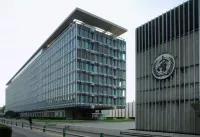
The World Health Organization WHO is a specialized agency of...
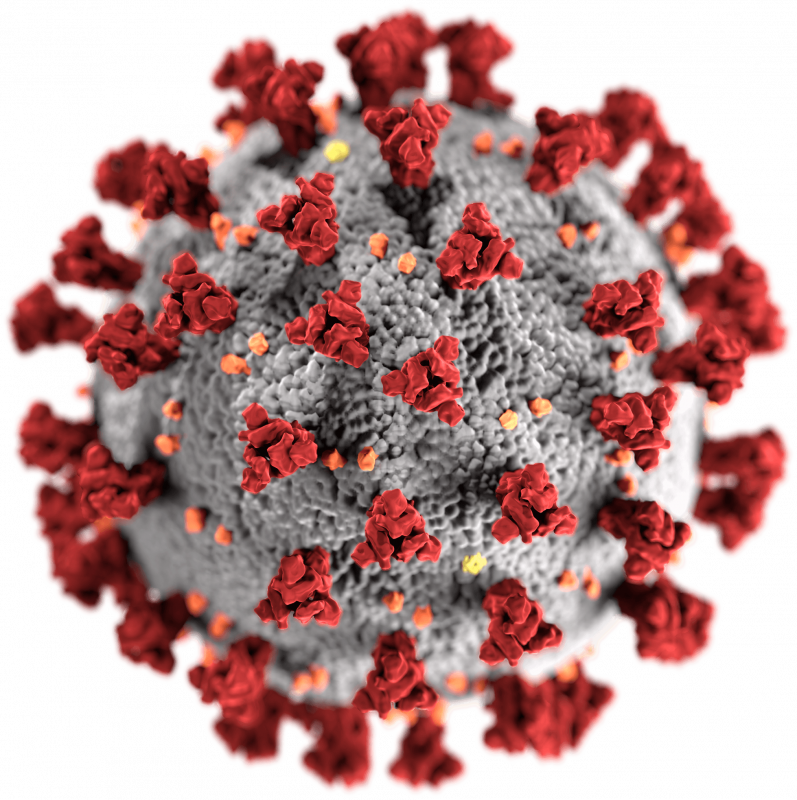
COVID- vaccines are designed to provide immunity against SARS-CoV- the...
Climate change encompasses global warming and its far-reaching effects on...
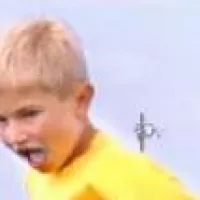
Sport encompasses physical activities and games frequently competitive and structured...
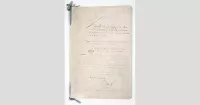
A constitution serves as the foundational legal document for any...
Trending
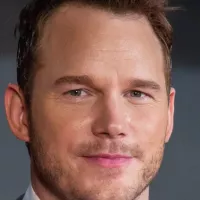
2 months ago Chris Pratt and Anna Faris share friendly hug during Thanksgiving reunion years after divorce.
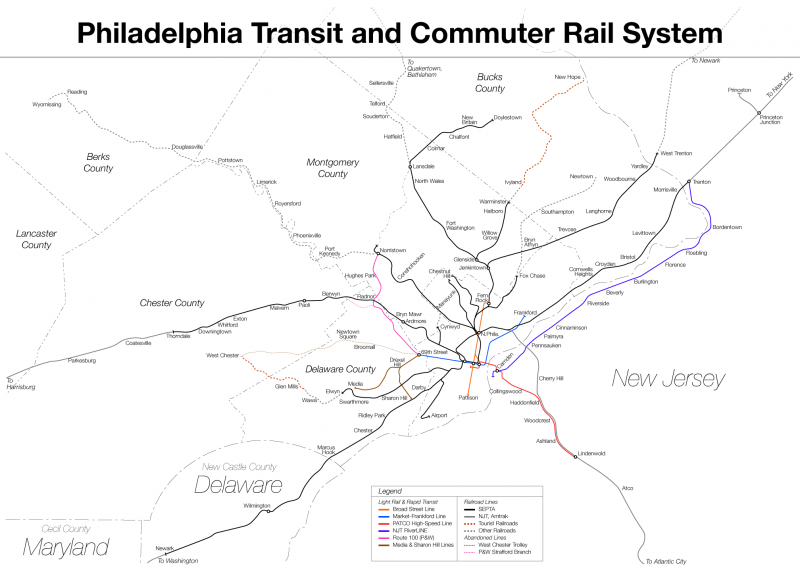
2 months ago SEPTA Regional Rail faces cancellations and delays due to safety inspections.
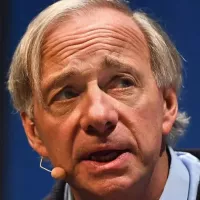
7 months ago Ray Dalio Warns of Economic Crisis: Tariffs, Debt, and a Potential 'Death Spiral'
4 months ago Micron's surge in 2025: Morgan Stanley predicts even greater gains; Cramer bullish.
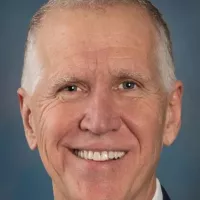
Thom Tillis is the senior U S Senator from North Carolina serving since A Republican he previously served in the...

3 months ago Upstart's Q3 Earnings: Mixed Results, Soft Q4 Guidance, and Stock Slides After Announcement.
Popular

Thomas Douglas Homan is an American law enforcement officer who...

Martin Luther King Jr was a pivotal leader in the...

XXXTentacion born Jahseh Dwayne Ricardo Onfroy was a controversial yet...

William Franklin Graham III commonly known as Franklin Graham is...
Matt and Ross Duffer known as the Duffer Brothers are...

Instagram is a photo and video-sharing social networking service owned...